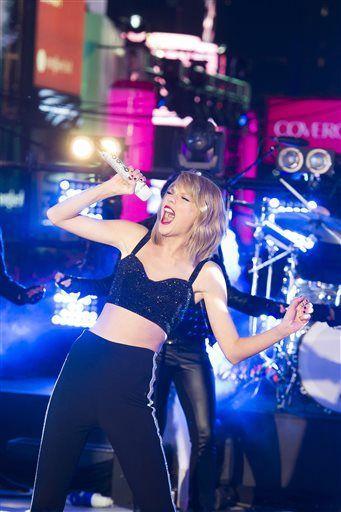The MTV Video Music Awards became relevant to pop culture again. A Twitter dispute between Taylor Swift and Nicki Minaj propelled the award show and feminism into stratospheric levels on social media on July 21, 2015, .
After Minaj’s “Anaconda” video failed to garner a Video of the Year nomination, Minaj took to Twitter to vent her annoyance writing, “If your video celebrates women with very slim bodies, you will be nominated for vid[eo] of the year.” Swift, whose “Bad Blood” video features many of her model friends, took offense to Minaj’s tweets replying, “I’ve done nothing but love & support you. It’s unlike you to pit women against each other. Maybe one of the men took your slot.”
Weeks after the dust settled and the two stars made up, minorities’ contributions to pop culture and feminism are still relevant. Critics have taken issue with Swift’s #GirlSquad brand of feminism, with some like Zeba Blay of the Huffington Post even painting her as a villainous character looking to make the situation about herself.
What these critics miss is she’s a young woman who saw something as a personal attack and put her foot in her mouth. In fact, her critics should thank her.
If Swift hadn’t wrongfully assumed Minaj was tweeting about her, the subject of minorities’ contributions to pop-culture wouldn’t have reached as many people as it did. More importantly, no matter what version of feminism Swift represents, its effect is significant. Why? Because she’s Taylor Swift.
In 2015, no other celebrity has the same reach as Ms. Swift. Her demographic transcends generations. Whatever the message is that she tries to convey, it is received by millions of people on a global scale.
Swift’s declaration of feminism last year was an important event in pop-culture. Swift, who credits Lena Dunham with introducing her to the topic, said her definition of a feminist was “someone who believe in the equality of the sexes.”
While many of Swift’s fans are young people who are somewhat familiar with feminism, many of her fans are children under the age of 16. Chances are, the idea of feminism wasn’t on their radar. Seeing their idol state her beliefs and surround herself with strong, successful women may change their perspective.
And about the Great Twitter fracas of 2015, Minaj is right. African-Americans are not consistently recognized for their contributions to pop-culture. In fact, they are often overlooked. Not every famous black woman is glorified by the media like Beyonce and it’s tragic.
Minaj’s anger over her lack of nominations for her “Anaconda” video is justified. Especially considering Miley Cyrus’ similarly infamous “Wrecking Ball” video received recognition last year.
Swift should have thought a little more about the bigger picture before she accused Minaj of pitting women against one another. Swift acknowledged in her apology tweet to Minaj. Yet many internet commentators still aren’t satisfied and I’m dumbfounded as to why.
At the end of the day, she was able to recognize she was out of line. She was –hopefully–able to identify the bigger battle black women like Minaj fight their entire careers. Swift was able to see it wasn’t about her and through that, introduced millions of young fans to a discussion they should be involved in. Had Swift chosen not to speak up on Twitter, headlines would have likely read “Nicki Minaj goes on Twitter rant” and many would’ve depicted her as a sore loser. It’s the ugly truth.
The Taylor Swift Effect is real and it’s the reason people still have this discussion.
John Harp is a mass communication Junior from St. Francisville, Louisiana. You can reach him on Twitter @SirJohnGavin.
The Taylor Swift Effect and Feminism
August 24, 2015

Taylor Swift performs in Times Square during New Year’s Eve celebrations on Wednesday, Dec. 31, 2014 in New York. (Photo by Charles Sykes/Invision/AP)
More to Discover










